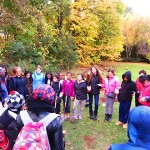Mark 6:30-34
Just picture the scene in today’s gospel. Last Sunday we heard of how Jesus sent the Apostles out two by two to preach the good news of God’s kingdom – he gave them power over unclean spirits and the power to heal the sick.
Today we hear of the excited return – they couldn’t wait to tell Jesus and one another all the wonderful things that happened on their first missionary journey. They were probably into ‘one up man ship’ – each trying to out tell the other with their success stories. Remember how your children came home from their first day of school, or from their first venture at a summer camp – they were just bursting with things to tell you.
Jesus was happy with all this news – he knew they been hard at work, traveling from town to town – preaching and healing. They’d been so busy they didn’t even have time to eat. So Jesus suggests they take some time out – time to relax, time to pray and time to reflect in a deeper way on what went on during the past weeks – all summed up in the invitation -‘ come away to a deserted place where there will be no distractions, no interruptions – and rest a while.’
But the best laid plans of even the son of God can go astray. By time they got to where they thought they would have some peace and quiet people were already there – wanting to hear more, see more. Seeing the crowds Jesus had compassion on them – he knew they were a searching people, people anxious to hear what he had to say about God’s love for them – words that lifted their spirits and gave them hope – so he put aside his plans for r and r and began to teach them many things.
The image of the shepherd is very present in today’s reading. Jeremiah excoriates the unfaithful spiritual shepherds of his time – those men who should have been giving good leadership to the people – but men who abused and exploited their position among the people. Jeremiah promises a time when true shepherds will lead the people to green pastures and still waters – who would be with them in the valley of the shadow of death. Jesus was conscious of the constant image of shepherd in scripture and calls himself the good shepherd – the shepherd who would lay down his life for his sheep.
Shepherds never took vacations – shepherds didn’t work 9 – 5, they never had a 40 hour week. Theirs was a 24/7 reality. Theirs was a life of vigilance, companionship, guidance, and protection to those in their care – the attitude and lifestyle of the shepherd had to be one of absolute availability – the modern farmer, for all the technology involved in farming today – still is pretty well tied down to the farm. I have a nephew in Sussex who runs a dairy farm – they milk over a hundred cows – all done by automation – but he seldom if ever gets away for a few days. Anything could go wrong -he’s got to be there.
Parents of new born children have a 24/7 reality – they have to be present to that child all the time – the same with young children – availability is the name of the game. Same thing with those caring for aging parents – there are times when you know you just have to be there. There’s no getting away.
But our life style today is really placing too many people in this 24/7 mode. The cell phone, the blackberry seem to be running peoples lives. People can’t seem to turn off the cell phone – have some peace and quiet. I’m expecting an important call, there might be an emergency. It can get to be an addiction. It can be a means of avoiding silence – Jesus had a plan – he wanted to get the apostles away by themselves, take time to eat, relax, share experiences and to pray – to get in touch with God and open their busy lives to God’s power and presence. He backed off this plan when he came across all these needy people. He put his plan on hold. Eventually they did get away to a quiet place. Availability is one of the messages of today – but taking time out is the other. Even Jesus couldn’t be available 24/7 – I love that song Mary Magdalene sings to Jesus in the musical ‘Jesus Christ Superstar’ – let the world spin without you tonight.
There was a saying in a book written years ago on ministry and the caution of the author to those in church ministry was – try not to lose the God of good works in the good works of God. Life is so hectic, so demanding on people today – how often have you seen a person coming home from a long day’s work, talking on the cell phone and carry a lap top – the message is, my works not finished. Because life is so hectic and frantic, because it is so 24/7 – we need to take the time and accept the invitation – that even our common sense offers us – come away and rest a while – chill out – get in touch with what is going on in our lives – In the course of a busy day – take ten minutes to be still – place before God the stress you are under, the concerns you have, the joys you have – make these our prayer of need and thanksgiving.
As we continue this Mass we can pray for ourselves and for each other that we be graced with the insight we need to accept the invitation of Jesus in today’s gospel – come away and rest a while – an invitation to care for our physical and spiritual well being – and as I’ve mentioned before – it helps keep things in perspective when we remember – cemeteries are filled with indispensable people – try to not make yourself one of them.
 Founded by St. Paul of the Cross, every Passionist takes a special vow to spend his or her energies in promoting remembrance of the sufferings of Jesus, the memory of the Cross, and reflection of the meaning of the Cross for the world.
Founded by St. Paul of the Cross, every Passionist takes a special vow to spend his or her energies in promoting remembrance of the sufferings of Jesus, the memory of the Cross, and reflection of the meaning of the Cross for the world.




